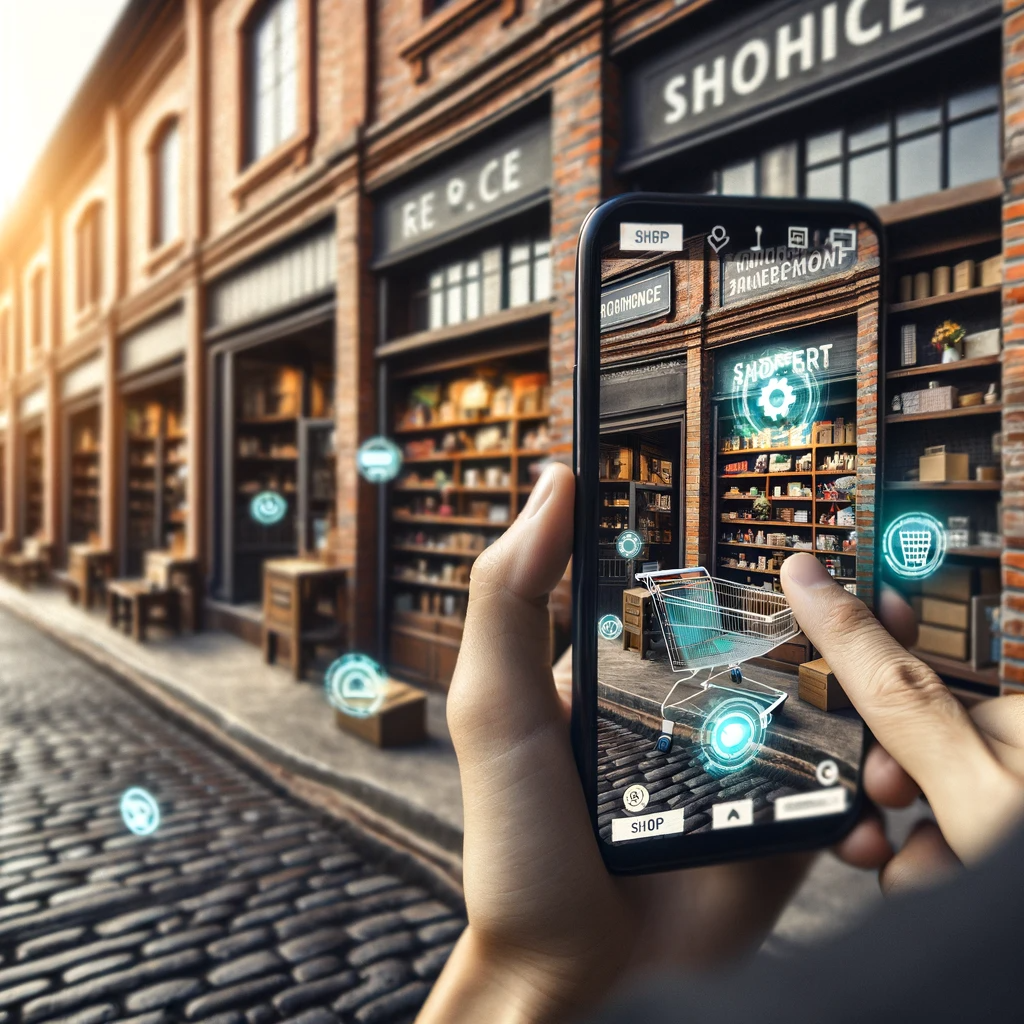The internet is abuzz with discussions of how COVID has changed the buying habits of consumers. While some feared that getting used to online shopping meant that people will only be buying online, the reality is that many still have a preference to visit a store and see an item in person before making a purchase. Nevertheless, we can’t ignore the recent upsurge in online stores over the past few years, from 9.7 million stores worldwide in 2019 to over 26 million stores today (source: https://www.markinblog.com); and the number of new ecommerce sites continues to grow each year. The new reality is that the future of ecommerce is not just online; it’s a hybrid model that merges the digital and in-store realms. This blog delves into what this future looks like and how businesses can navigate and thrive in the blended retail landscape.

Integrating Physical and Digital Experiences for a Hybrid Model
The cornerstone of hybrid ecommerce is the seamless integration of online and offline experiences. Over the past few years, retailers have been adopting newer technologies that blur the line between physical and digital shopping. For instance, virtual fitting rooms and augmented reality (AR) apps allow customers to try products virtually at home. Smart mirrors in physical stores suggest products based on customer preferences. This integration is expected to become more sophisticated, offering highly personalized and immersive shopping experiences.
Data-Driven Personalization
As retailers operate both online and offline, they gather vast amounts of data. This data, when analyzed effectively, can lead to highly personalized shopping experiences. Imagine walking into a store where the sales staff knows your online shopping history and can make personalized recommendations. Or, an online platform suggesting products based on your in-store purchases. The future of hybrid ecommerce lies in harnessing this data to create a uniquely tailored experience for each customer.
Flexible Fulfillment Options
Convenience is key in the future of hybrid ecommerce. Customers want flexibility in how they can get their products. Services like buy online, pick up in-store (BOPIS), and same-day delivery are becoming standard offerings. We’re also seeing the rise of automated pickup stations and smart lockers, which offer customers the convenience of picking up their online purchases where they want and where.
Enhanced Customer Support
Hybrid ecommerce also focuses on providing consistent and efficient customer service across all channels. This means integrating customer service platforms so that a potential buyer can send a query online, which can then be answered by an in-store employee. AI-powered chatbots and virtual assistants will play a significant role in offering immediate and personalized customer service. But, these can be even better enhanced by routing a call to the nearest store when a personal touch is required.
Technology at the Forefront
Technological advancements will continue to drive the future of hybrid ecommerce. Technologies like blockchain for secure transactions, AI for predictive analytics, and augmented reality for enhanced inventory management will revolutionize the way retailers operate.
Adapting to Changing Consumer Behaviors
The future of hybrid ecommerce will be about staying agile and responsive to changing consumer behaviors. Retailers will need to continually adapt their strategies to meet evolving customer expectations and stay competitive in a rapidly changing market.
Conclusion
Yes, people are still visiting stores! So the future of online shopping is hybrid ecommerce, which is a dynamic, integrated experience. So, for businesses, the key to success in this new retail landscape will be their ability to adapt, innovate, and seamlessly merge their online and offline operations. As technology continues to evolve, so too will the opportunities for retailers to create engaging and efficient shopping experiences that meet the needs of their customers.
Contact us now to learn how we can help bring your business into the hybrid future!

